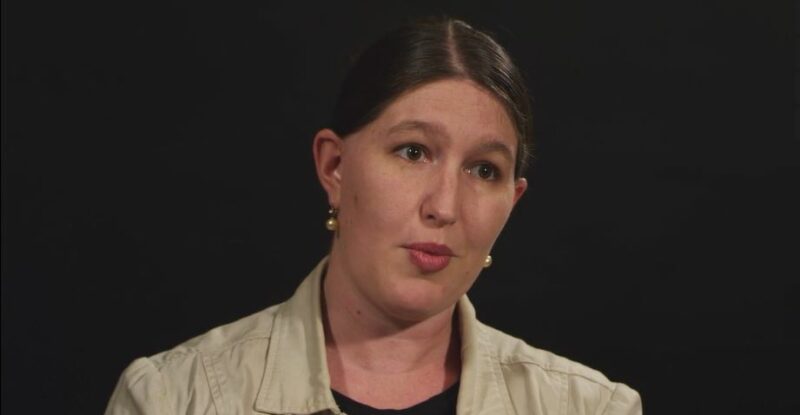IPA’s pick for Human Rights Commissioner undermines independence
Sep 7, 2021
Lorraine Finlay’s appointment as Human Rights Commissioner is yet another attack from the Coalition on the commission’s independence.
The Australian Human Rights Commission has long been in the sights of the Coalition government. In 2014-2015 the Coalition made life hell for commission head Professor Gillian Triggs because she did her job in inquiring into, and reporting on, the appalling mental and physical health abuse of children in immigration detention. Triggs’ successor as president of the commission Rosalind Croucher, appointed for a seven-year term in 2017, rarely puts her head up to criticise the continued trashing of human rights by the Coalition (shamefully often aided and abetted by the ALP). But now the Morrison government has gone a step further in its undermining of the commission’s independence with the appointment of a conservative academic with strong Liberal Party ties from Perth’s Murdoch University, Lorraine Finlay.
Her appointment will satisfy the Liberal Party’s favourite think tank, the IPA, which put together a list of suitable conservatives to take over from Triggs in 2017. Finlay was on the list.
Finlay is taking over the key job as Human Rights Commissioner, with Ed Santow departing recently. A simple Google search will tell you that Finlay ticks all the boxes for Attorney–General Michaela Cash and the Coalition’s deep conservatives who have since the Howard years controlled the Liberal Party.
Let’s start with the obsession of section 18C of the Racial Discrimination Act. This provision makes it unlawful for people “to do an act, otherwise than in private, if: (a) the act is reasonably likely, in all the circumstances, to offend, insult, humiliate or intimidate another person or a group of people; and (b) the act is done because of the race, colour or national or ethnic origin of the other person or of some or all of the people in the group”. It was the section which was key to findings by the Federal Court in 2011 against columnist Andrew Bolt who launched an attack on a number of Indigenous Australians.
The conservatives loathe this provision because they think it’s an affront to freedom of speech. It is a cause celebre for them as they also see the provision as being part of the armoury of so-called cancel culture. Never mind that the section prevents, as Professor Luke McNamara from the University of NSW wrote in 2016, cases “involving holocaust denial and anti-Semitism; a case in which Aboriginal youths killed in a car accident were described as ‘criminal trash’ and ‘scum’ that should be used as ‘land fill’, and a case in which an Aboriginal women and her family were subjected to an torrent of (racial) abuse.”
Finlay was a co-author of a polemic called No Offence Intended: Why 18C is Wrong, published by Connor Court, the go-to conservative publishing house these days, and in 2017 was on a speaking list with Cory Bernardi, Malcolm Roberts and David Leyonhjelm, and Mark Latham among others proclaiming “freedom”. In 2014 Finlay, along with another academic Augusto Zimmerman, criticised the Abbott government for not repealing 18C arguing, “the failure to repeal s 18C is a missed opportunity.” The article, published in the Macquarie Law Journal, argued “the most effective way of responding to hate speech is through the protection of free speech, with exposure through public debate and criticism being a more powerful long-term tool for combating intolerance than its attempted suppression through legal sanction.”
Then there is the issue of giving a voice to First Nations people in the federal parliament, vehemently opposed by many in the Coalition. Featuring in an ad from the IPA attacking the proposed Indigenous voice to parliament, Finlay called the proposal “patronising”, saying it implied Indigenous Australians were “only allowed to play a certain prescribed role in the Australian democracy”.
Finlay opposes laws that would ensure that Australians at the federal level are better protected in terms of their human rights and join most other democracies in enshrining human rights in legislation.
She opposed the proposed religious freedom law pushed by fellow conservatives because it would lead to a “backdoor bill of rights”. Finlay trots out the usual nonsense that as human rights law gives power to judges, as unelected officials, to play politics. “Naturally, any time that a statutory basis for human rights is established it inevitably hands the interpretation of those rights to the judiciary, and yet this is a task that they are not ideally suited to. Judges do not have the training or skills to engage in wider debates about social policy and public morality,” Finlay argued in 2019. This ignores the critical work done by UK, Canadian and New Zealand courts in using human rights law to stop egregious abuses of power by executive government.
One important point not noted in the media release announcing Finlay’s appointment on Sunday was her involvement at a senior level in the Liberal Party. Finlay’s biography on Online Opinion, an op-ed site, notes “Lorraine Finlay is a law lecturer at Murdoch University, lecturing in constitutional law and international human rights. She is also a former president of the Liberal Women’s Council (WA).” Why didn’t Cash mention that?




